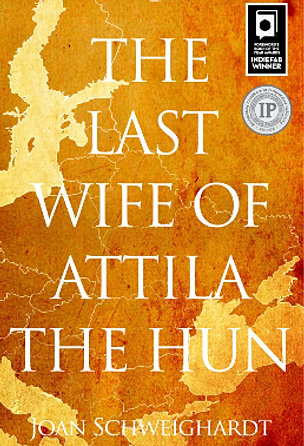 Salloum has excelled in evoking the Katrina disaster and in depicting a criminal sub-culture. The action keeps readers alert, and the New Orleans landmarks will interest those who lived or have visited that city. Candyland has been described as a “noir” suspense thriller, and it is that, but it is less pessimistic than Salloum’s earlier novel, Faulkner and Friends, and reaches a satisfying conclusion.
Salloum has excelled in evoking the Katrina disaster and in depicting a criminal sub-culture. The action keeps readers alert, and the New Orleans landmarks will interest those who lived or have visited that city. Candyland has been described as a “noir” suspense thriller, and it is that, but it is less pessimistic than Salloum’s earlier novel, Faulkner and Friends, and reaches a satisfying conclusion.
Tag: fiction
A review of Baggage by S.G. Redling
 Redling’s fast-paced novel is full of well-wrought scenes, including one in which Anna’s artist father finds her colouring an outline of a Cezanne that she saw at an art museum. He flies into a rage and destroys her prized book because she is colouring rather than creating.
Redling’s fast-paced novel is full of well-wrought scenes, including one in which Anna’s artist father finds her colouring an outline of a Cezanne that she saw at an art museum. He flies into a rage and destroys her prized book because she is colouring rather than creating.
A review Of The Arrangement By Ashley Warlick
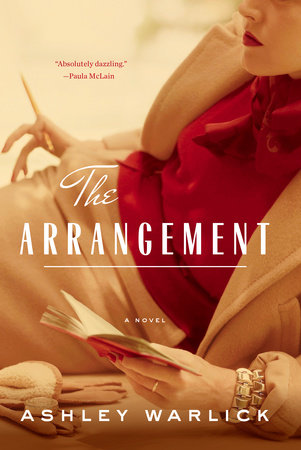
A review of Something is Rotten in Fettig by Jere Krakow
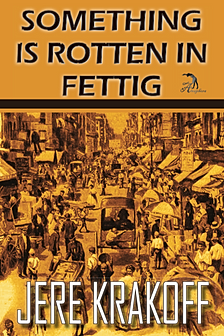
A review of The Decision by Britta Bohler
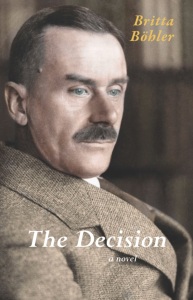 Britta Bohler has written a wonderful novel, an immersive and psychologically convincing account of Mann’s agony of decision. Smoothly translated by Jeannette K. Ringold, it is well researched and chock-full of sharp insights into one of the great writers of the twentieth century.
Britta Bohler has written a wonderful novel, an immersive and psychologically convincing account of Mann’s agony of decision. Smoothly translated by Jeannette K. Ringold, it is well researched and chock-full of sharp insights into one of the great writers of the twentieth century.
A review of Dark Avenues by Ivan Bunin
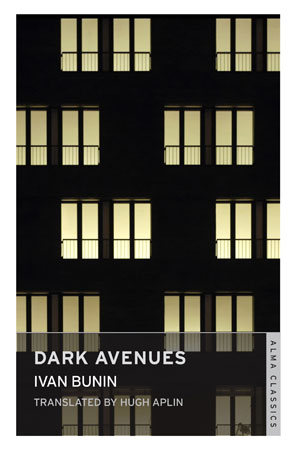 If you’re looking for a point of comparison, I’d say Bunin as a writer is similar to Chekhov, that’s his model. Though he is darker, more risqué and also narrower in his sympathies. There are some people, you feel, that Bunin is just not interested in – something you never feel with Chekhov. There are some people, you feel, that Bunin is just not interested in – something you never feel with Chekhov. Bunin is a little old-fashioned or out of touch too, you sense. Set in his ways. You read a story written in the ‘40s – and so contemporaneous with Hemingway, Waugh and Greene – and the people are behaving like turn of the century Russian nobility.
If you’re looking for a point of comparison, I’d say Bunin as a writer is similar to Chekhov, that’s his model. Though he is darker, more risqué and also narrower in his sympathies. There are some people, you feel, that Bunin is just not interested in – something you never feel with Chekhov. There are some people, you feel, that Bunin is just not interested in – something you never feel with Chekhov. Bunin is a little old-fashioned or out of touch too, you sense. Set in his ways. You read a story written in the ‘40s – and so contemporaneous with Hemingway, Waugh and Greene – and the people are behaving like turn of the century Russian nobility.
A review of Try Not to Breathe by Holly Seddon
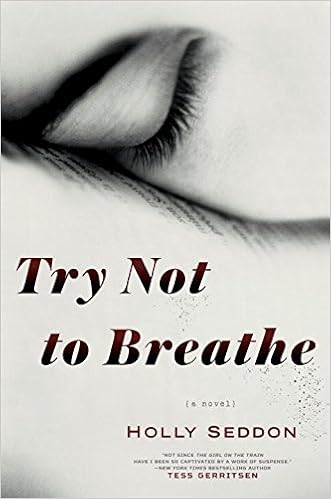 It worked for Gone Girl. Not to the same degree, it works for Try Not To Breathe. That’s what Seddon brings to fruition more than anything. It’s the same way her stretching into sci-fi with her short story “Graduate Schemes,” published in the dystopian anthology Broken Worlds, leans closer to squabbling than the high stakes of a truly broken world.
It worked for Gone Girl. Not to the same degree, it works for Try Not To Breathe. That’s what Seddon brings to fruition more than anything. It’s the same way her stretching into sci-fi with her short story “Graduate Schemes,” published in the dystopian anthology Broken Worlds, leans closer to squabbling than the high stakes of a truly broken world.
A review of You Are Dead by Peter James
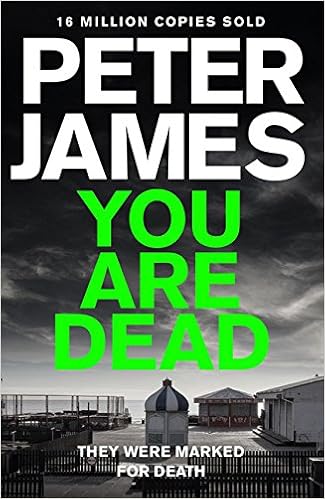 I don’t read thrillers regularly, but You Are Dead caught and kept my attention throughout. James kept a tight rein on the plot, and there was no obvious suspect. He added a twist to Logan and Jamie’s engagement that I didn’t expect, although I would have liked more details on that relationship.
I don’t read thrillers regularly, but You Are Dead caught and kept my attention throughout. James kept a tight rein on the plot, and there was no obvious suspect. He added a twist to Logan and Jamie’s engagement that I didn’t expect, although I would have liked more details on that relationship.
A review of Unbecoming by Rebecca Scherm
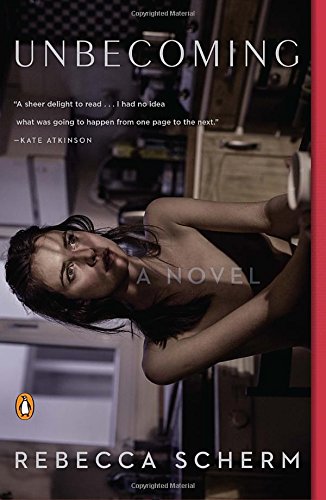 Rebecca Scherm’s Unbecoming is a heist tale, a bildungsroman, a love story, and above all, a compelling psychological study of a likeable young woman with strong anti-social tendencies. As the novel progresses, Grace, the protagonist, not only behaves in “unbecoming” ways, but “unbecomes” the promising girl she once was. She grows in independence, strength and daring, but it is impossible to approve of her.
Rebecca Scherm’s Unbecoming is a heist tale, a bildungsroman, a love story, and above all, a compelling psychological study of a likeable young woman with strong anti-social tendencies. As the novel progresses, Grace, the protagonist, not only behaves in “unbecoming” ways, but “unbecomes” the promising girl she once was. She grows in independence, strength and daring, but it is impossible to approve of her.
A review of The Last Wife of Attila the Hun by Joan Schweighardt
